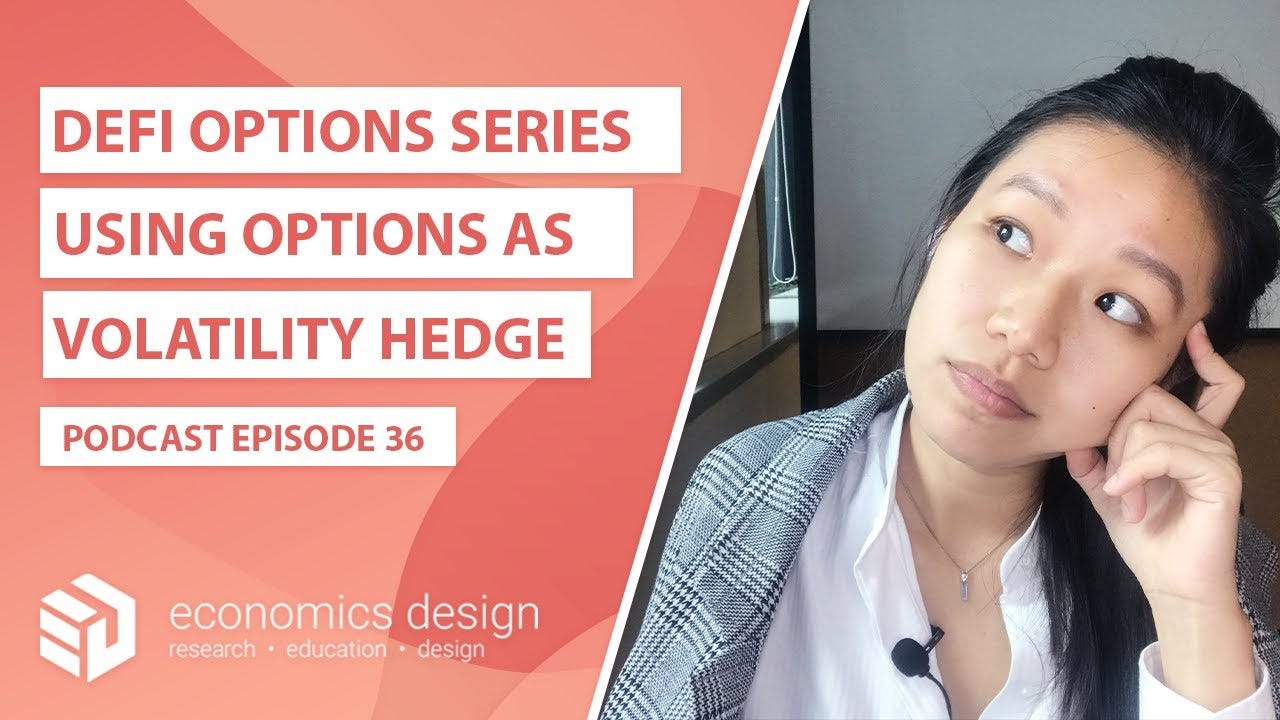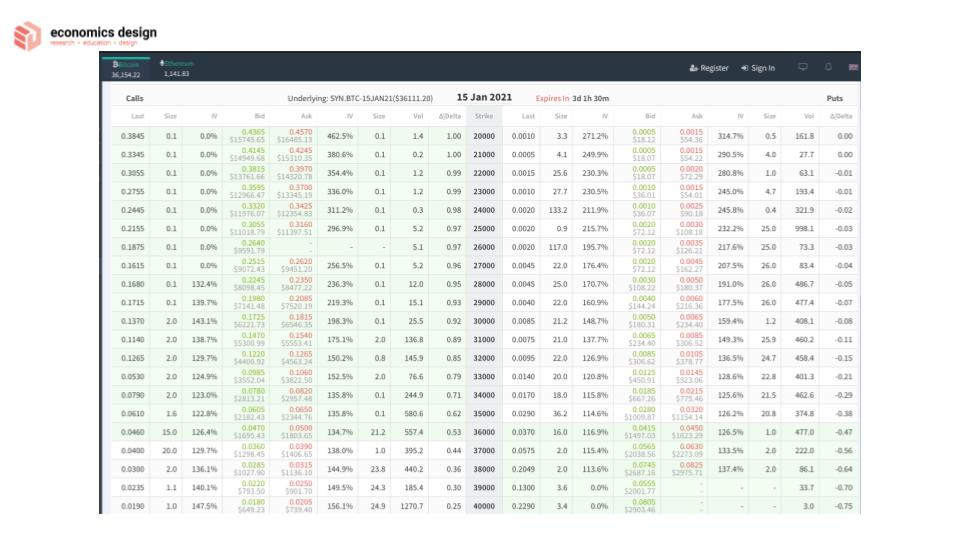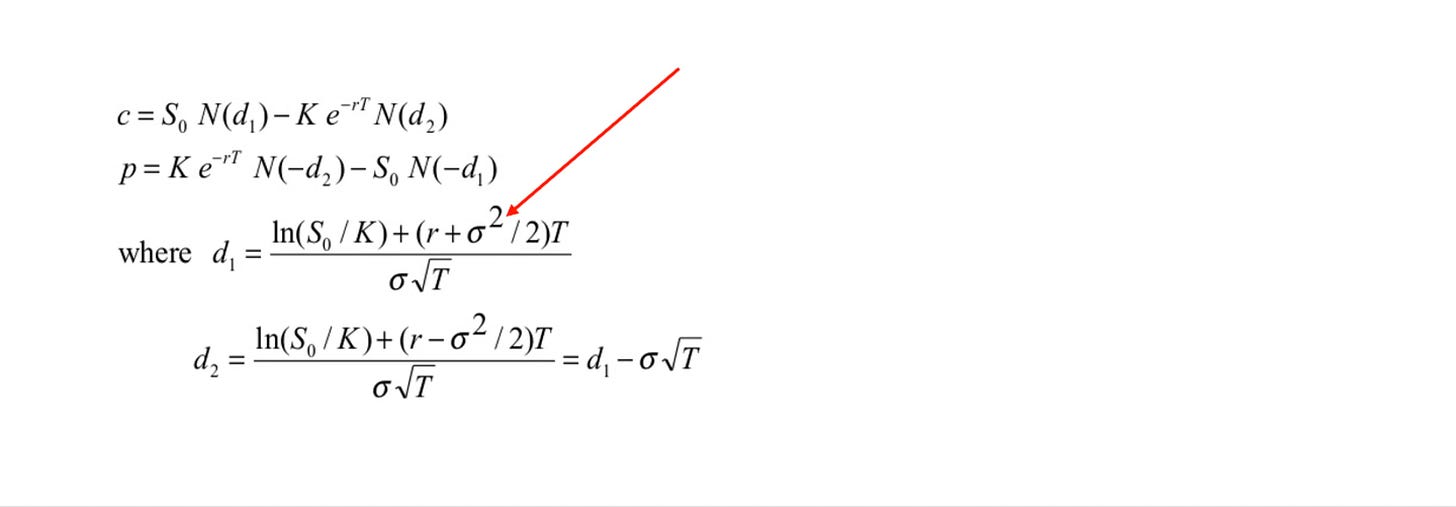Ep: 36 How to use options to hedge against volatility
Use Options to hedge.
Welcome, premium subscribers! Thank you for subscribing.TLDR below. This is not financial advice.
Catch the episode on YouTube
What are Options?
Options is an obligation to do something. You can also limit your risk with this contract. The general idea is that options are really just a bet to do something or an alternative to do something.
Literally it means the option to buy or sell an asset at a specific price by a specific date.
So if you have a paper and you sign on a paper and then you have to choose four things:
I want to Buy (action)
I choose the $LISA (asset)
At a price of maybe 2 bitcoins (strike price)
By the 15th of January (expiry)
It's kind of like when you're young and you make a promise with your best friend saying that if you’re both singles by 40 then you’re going to consider marrying each other. So you make a promise with each other and at that date (40 years old) or the options expiry date and you can choose whether to execute the contract.
By the time you're 40, you and your friend can say that yes we get married or no we don't get married. That is really just an option or a promise to do something. You don't have to do but if the contract buyer agrees then it will be done. Because of that, you have to pay for it because this agreement is valuable because if both parties agree to execute it then there is value in that. Options are not free and you have to pay some money for it.
Put vs Sell
Generally, there are just two types of options a call and a put so a call is to buy the option and a put is to sell the option. Let's say I want to buy $LISA at one bitcoin then I have a call option there so I want to buy it at this specific price then that is the agreement that we have. Or you want to sell $LISA at a specific price then that is the put option.
Holding Underlying vs Buying Option
If the options are to buy or sell the asset then what's the difference between me just holding the underlying asset instead? Why do I have to buy an option to buy or sell the asset when I can just hold the underlying asset?
Because
Stack strategies: It gives you more varieties to play around with strategies so if you are doing trading or if you're doing a lot of different complicated strategies then options might be a better alternative because it gives you more variety and more leeway to play around and strategize.
Lower cost/risk: In financial terms, options are sometimes much better alternative. For example, if you were holding the underlying asset then your losses could be unlimited because you could lose the entire underlying asset whereas if you're buying an option the losses can be limited depending on what kind of options you're looking at so in that financial aspect options can be a bit safer
Less capital lock-up: The other reason you want to buy options versus holding the underlying asset is that with buying options there's slightly less upfront amount of money to be paid so let's say options cost two dollars per option contract and depending on the strategy you're looking at then the maximum loss is that two dollars and also the amount of money you're putting up front are that two dollars until you're willing to execute the contract so in that sense it's it could be friendlier in terms of of the financial aspects
How to read Options
We understand this by taking an example from the following snapshot:
Call option
Let's do a specific strike price of $36,000.
Here we can see that the bid and ask spread is about $1,700 and $1,800. This $1700 is the cost to buy this options contract and the cost that you put down to have the option to buy bitcoin at $36,000 in 3 days time.
That can be quite useful because maybe bitcoin is going to go up in the next few days and be $40,000 and you want to lock in your price today at $36,000 so you pay $1700 for it. Three days later, you can go into the agreement to buy bitcoin at $36,000.
Let's say in 3 days time, Bitcoin sells for $40,000. So you can execute the contract, buy at $36,000 and sell in the open market. You get $4,000 in profits. The real revenue is $4,000 less the $1,700 (cost to pay for option).
That gives you $2300 profit and that is one way to use options in your trade.
Put Option
Once again we look at the same thing $36,000. The price of that option contract is about $1500 and $1600. Bitcoin is about $36,000 and let's say you purchased it at $1500. In three days you have that bitcoin and you sell it for $36,000 because the contract is that someone will buy it from you at $36,000.
But in the open market, it's just $30,000. You can go to the open market purchase one of them at $30,000 and go to this guy to execute your contract and get $36,000 and in that process, you earn $6,000 and after subtracting your bid or the cost of $1500 you get $4500 in profit.
Options as Insurance against Volatility
There are a lot of different kinds of option mechanisms where you take a couple of optional strategies put them together and then allow them to work with each other to reduce your risk or increase upside so it really depends on how you use it and one of them is the PUT Option.
PUT Option
A PUT option is to sell the option and we use it to hedge or to reduce our monetary risk or volatility risk in the DeFi space.
Let's say I’ve got all these digital assets available and put option basically helps to limit losses.
Let's say bitcoin is going to be 30,000 but our agreement is that you will buy my bitcoin at 36,000. No matter whether the price is 30k or 15k or anything else, you will still have to buy it at 36,000 as we have made an agreement.
In that way, it helps to protect you against whatever is going on in the market because you get to lock in your sell price and if by the time that contract expires bitcoin is worth 40,000 then you just let the contract be and don't have to execute it.
It's helping you to limit your downside and so if any of the asset prices fall very low the put option helps you to limit your loss because you can always sell it at the price you agreed upon.
Traditional finance VS DeFi in terms of options
TradFi
In TradFi we have liquidity providers, buyers, and sellers. Liquidity providers are like market makers and you have them in all these big financial markets then we have people who are actively buying and selling or the buyers and sellers and liquidity providers or market makers have to fulfil the trade so in general, that's how traditional finance works and it works in options because in the options contract you buy them from the liquidity providers.
DeFi
In DeFi we have something similar. You have liquidity providers, buyers, sellers, and a protocol. The protocol is the machine or the technology to execute all these different buying and selling.
Liquidity providers might not be one big individual market maker to provide liquidity instead it could also be a lot of individual decentralized market makers or autonomous market makers coming in together to become liquidity providers.
Then to be providing all these options contracts to buyers and sellers and the protocol could also be the system issuing tokens, executing smart contracts or running smart contracts.
Protocol
The protocol can incentivize buyers and sellers to purchase and can also help option sellers to get premiums because that's the main thing that incentivizes people to be selling options. They can make money, which is the premium or the price you pay for the option and then the protocol will also be minting or managing tokens.
These tokens can help to align the incentives between all the three parties which are the liquidity provider or the market maker, the buyers and the sellers so that's why the protocol is important.
What needs to be done?
When we look at options we are looking at three stages.
Before the option exists: market creation
When the option exists: how to trade
When it expires or when people want to settle the options: how is it done and executed
The Troubles
The first one is collateralisation because you have to give collaterals to create these options, especially with crypto assets. It's a bit more complicated and it also depends on the kind of settlement as it could be cash settlement or physically delivered.
The other thing to consider is how will the protocol reflect the change in the premiums dynamically.
Things that could that will affect the protocol or the option contract are
Change in option pricing
Changes in the underlying contract or underlying asset
Change in time to maturity because as it becomes closer and closer to the expiry date the price actually falls because the contract is less valuable as it nears the expiry date
Volatility the higher the volatility the higher the price of the option
Interest rate
Dividends
The Black-Scholes Formulas
There are a lot of ways to be pricing options but the most famous one is the Black Scholes model and it's a bit of a complicated formula to be pricing options and it's not perfect as there are a lot of things that can be improved. But gives us a general way to put our assumptions of options into a pricing number.
Why do people buy options?
Options are actually not that complicated if you know exactly what you want.
Let's say I'm just using options as a way to hedge against volatility or as a way to reduce my risk. Options can be an insurance against price dropping and if the price drops too low then I'm going to lose out because my asset is not as valuable. But if I have a put option, then there is a hedge against the market movement and volatility. It becomes monetary insurance that is comfortable because I can limit my loss.
The other reason is to bet about the market as options can be quite complicated so you can use it very intelligently to bet about the market so if the market is going up and it's a full market then maybe you can do some form of strategy to gain from it.
Listen on podcast if you prefer audio version
TLDR:
Options sound complicated but when you know why you are using them, it's easier to make sense of them. Options are a promise by someone to sell or buy an asset at a specific price at a specific date. You pay to get that promise. You can use it to hedge against price volatility or to speculate in the market.
Get smart: Put options as insurance for price dropping. Call option if you think prices are going up.
Get smarter: Nothing is free. Watch out for prices of the option contract. You might not breakeven if the prices don't move much.
Order the book now: book.economicsdesign.com






